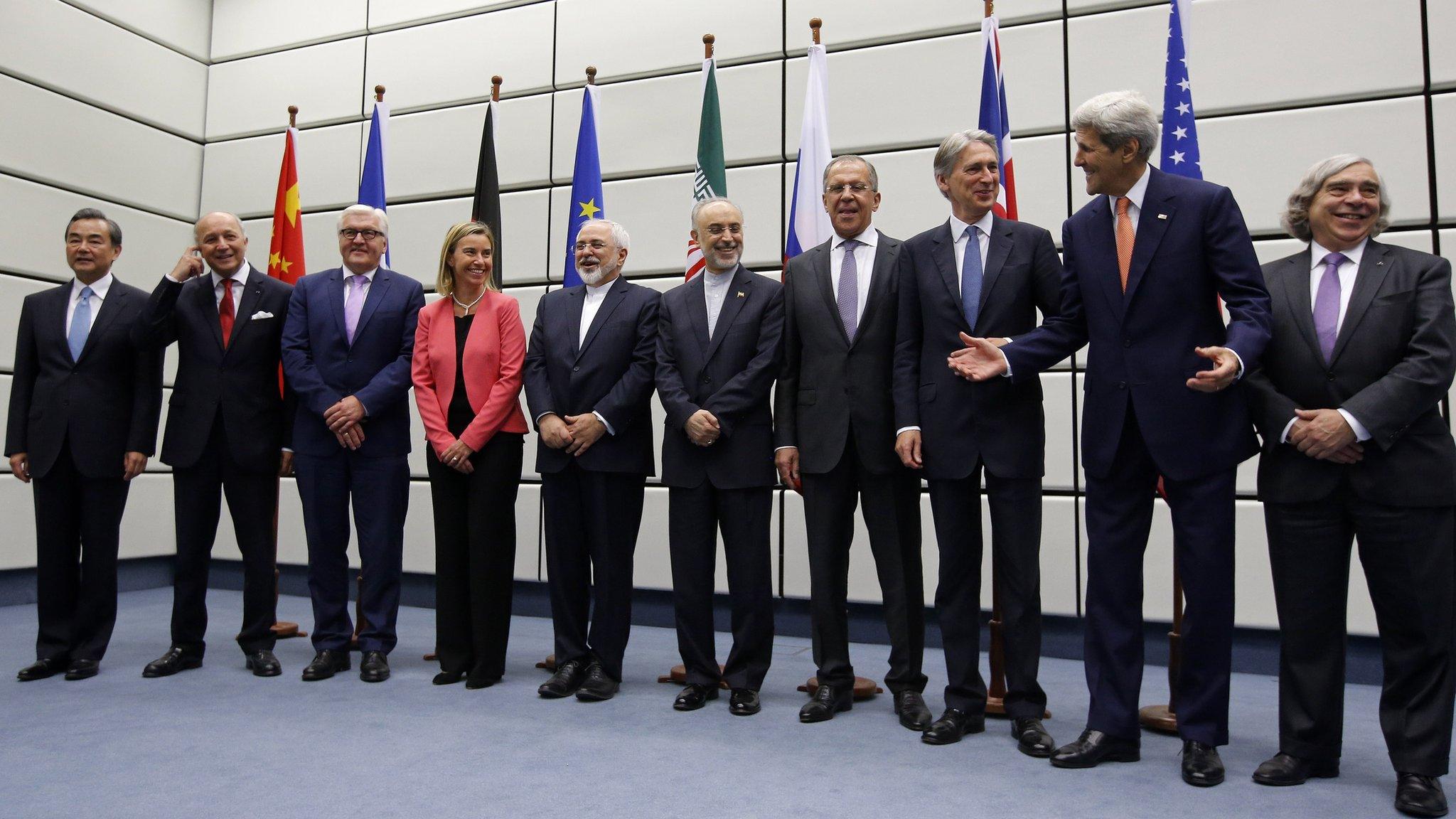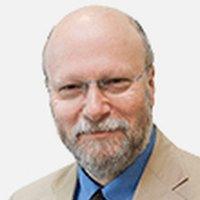Nuclear conflict risk: Why the bomb is back
- Published
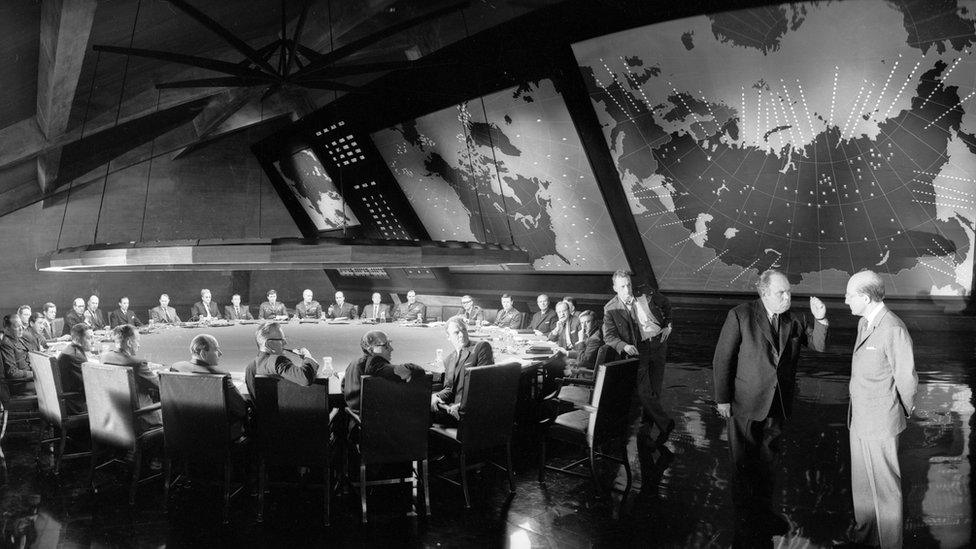
The film Dr Strangelove satirised fears of a nuclear conflict between the US and the former Soviet Union
The film Dr Strangelove or: How I Learned to Stop Worrying and Love the Bomb - to give it its full title - remains a comedy classic. Starring Peter Sellers in multiple roles and directed by Stanley Kubrick, it illustrated the way in which the US and the then Soviet Union might unintentionally drift into all-out nuclear war. Back in 1964, when it was first released, it was a very dark comedy indeed. Audiences then lived under the very real shadow of the Cold War nuclear arms race.
Mindful of the dangers, over the years, an elaborate series of arms control and arms reduction agreements were concluded between the two superpowers to try to manage their nuclear rivalry.
But with the Cold War over, nuclear arsenals were scaled down. The nature of international conflict seemed to change; no longer rivalry between great powers but bitter local wars where countries disintegrated into chaos or terrorist groups sought to capitalise on ungoverned space to mount their nihilist campaigns.
But now there are those who fear that the nuclear spectre is becoming all too real again. The US non-governmental organisation Global Zero certainly thinks so. It has brought respected former officials and military men together to campaign for the abolition of nuclear weapons.
It is launching a new initiative on Friday in Vienna to establish what it calls the Nuclear Crisis Group, which it hopes will serve as a kind of shadow-Security Council to deal with potential nuclear flashpoints.
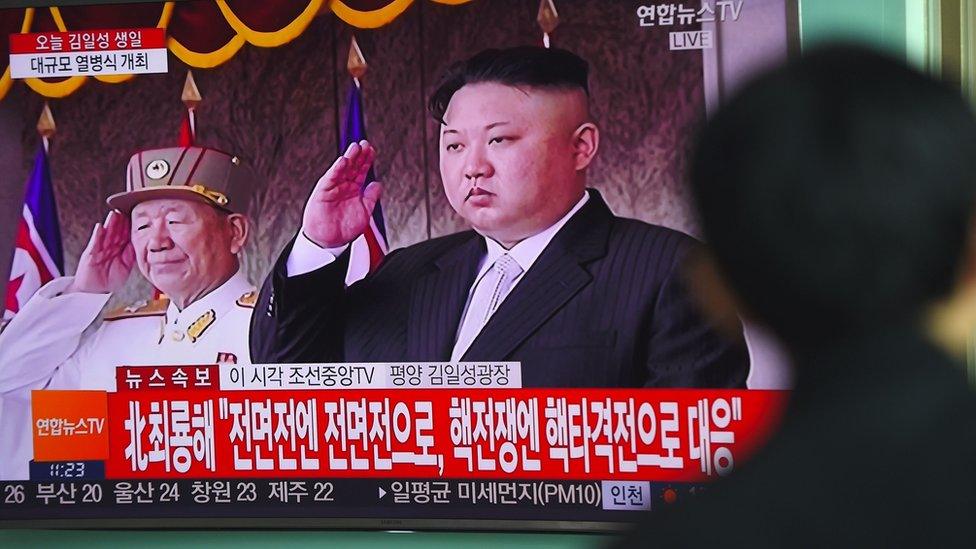
Tensions have risen over North Korea's nuclear programme
As Global Zero Executive Director Derek Johnson told me, "from Ukraine and the Korean Peninsula, to south Asia and the South China Sea and Taiwan, all of the nuclear-armed states and their allies are tangled up in conflicts and crises that could go nuclear at any moment."
"It's true," he notes, "that each of these crises has been simmering for a long time, but they're all heating up." The world, he argues, "has never been faced with so many nuclear flashpoints simultaneously".
The growing tensions between the US and North Korea are clearly very much on Global Zero's minds. "The election of Donald Trump," says Johnson, "has injected an alarming new level of incoherence and volatility into a uniquely perilous moment in human history."
The message of Global Zero is that mankind is "simply not equipped to manage existential risks indefinitely". The new Nuclear Crisis Group will monitor potential flash-points; seek to publish reports to educate and keep these issues in the public eye, while also engaging in behind the scenes diplomacy to try to influence the main players.
The NCG is co-chaired by the respected US diplomats and ambassadors Richard Burt and Thomas Pickering, and by a former general, James E Cartwright. It describes itself as embracing "a cadre of seasoned diplomats, political and military leaders and national security experts from key countries, including China, India, Japan, Pakistan, Poland, Russia, South Korea and the United States".
A nuclear race?
The NCG and its sponsoring organization - Global Zero - are clearly part of a nuclear disarmament lobby that in many ways feels that it has been pushed to the sidelines. While it would be wrong to speak of a new Cold War, relations between Russia and the US are clearly at a very low-ebb.
But their relative positions and capabilities have changed. Russia - despite its military adventure in Syria - is a shadow of the former Soviet Union.
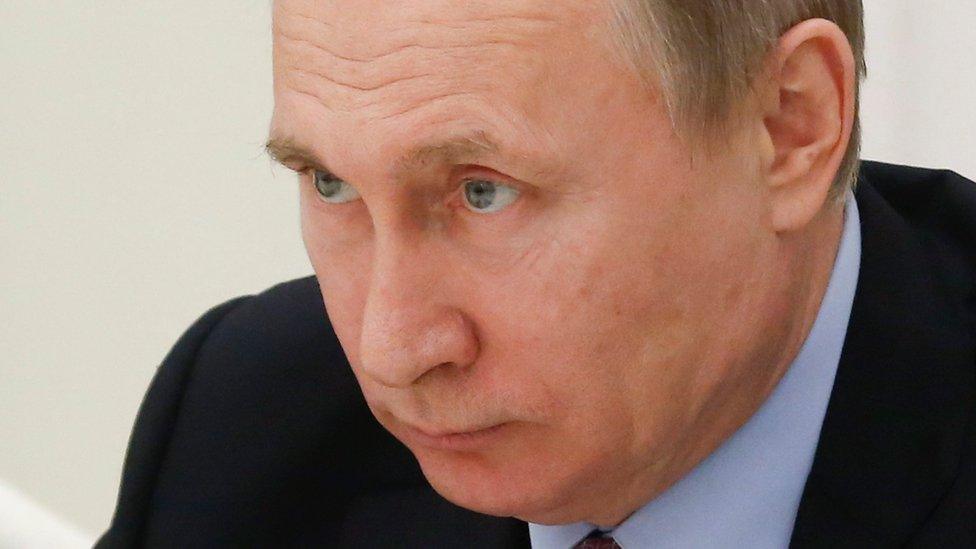
President Putin is seeking to modernise Russia's nuclear arsenal
Nonetheless Moscow's Syria intervention illustrates that Russia cannot simply be ignored and the deepening tensions come at a time when both Washington and Moscow are seeking to modernise their nuclear arsenals.
Indeed Russia's military doctrine places a growing importance on its nuclear arsenal, not least because of the imbalance of conventional forces between it and the West. Donald Trump's own approach to nuclear weapons is unclear - he has spoken in muscular terms about expanding the US nuclear arsenal and has been sceptical about the value of one of the key Cold War arms reduction treaties.
Indeed arms control is having a hard time generally. Russia is widely regarded in the West as having breached the Intermediate Range Nuclear Forces (INF) Treaty, an agreement that for the first time abolished a whole category of nuclear weapons.
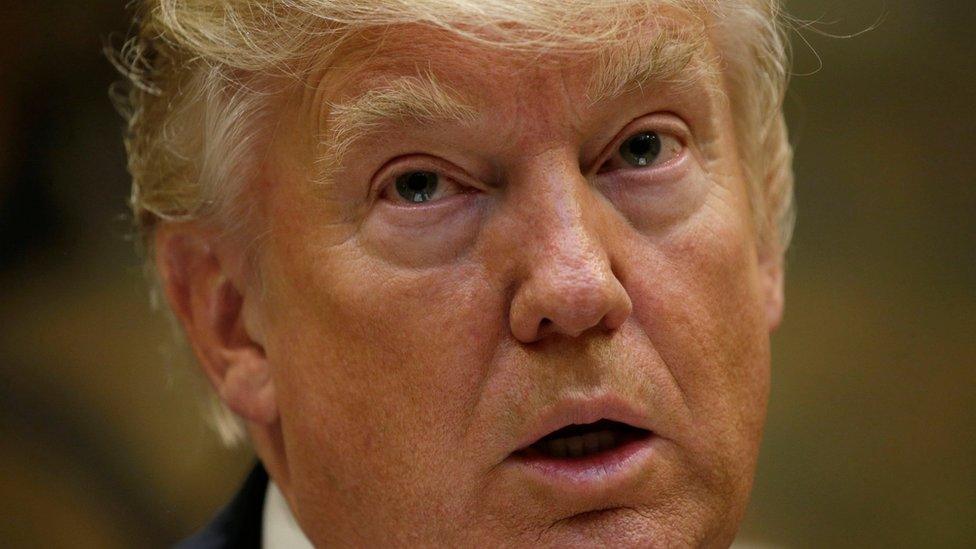
Uncertainty over Mr Trump's policy towards Iran has contributed to the tensions
New conventional long-range strike systems look set to complicate the balance of threat and deterrence. And the demise of Saddam Hussein's regime in Iraq and that of Colonel Gaddafi in Libya seem to have sent a clear signal to the North Korean leadership that you renounce weapons of mass destruction at your peril.
Uncertainty about the Trump administration's attitude to the nuclear deal with Iran that has, at least, constrained its nuclear development for a period, adds another element of tension.
So nuclear disarmament according to Global Zero should be very much back on the agenda. The developing crisis over North Korea's nuclear programme simply provides added urgency.
There is of course no equivalence between the regime of Kim Jong Un and the Trump administration.
But the combination of an erratic and unpredictable North Korean leadership with an inexperienced president who seems fascinated with the military is a dangerous one. The possibility of a confrontation between two-nuclear armed countries suddenly seems more real now than it has for decades.
Maybe Dr Strangelove would be worth re-viewing.
- Published4 July 2017
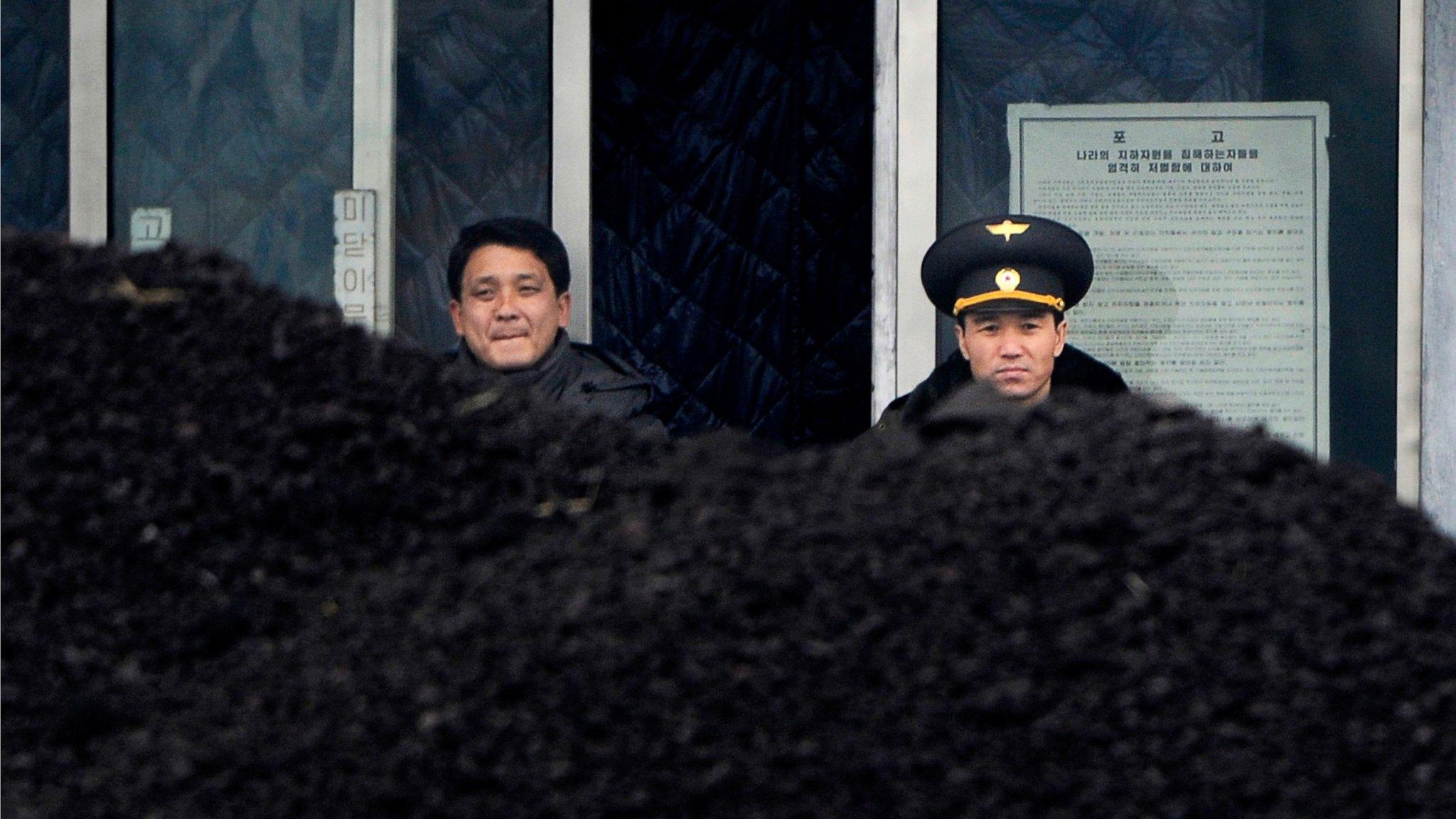
- Published10 August 2017
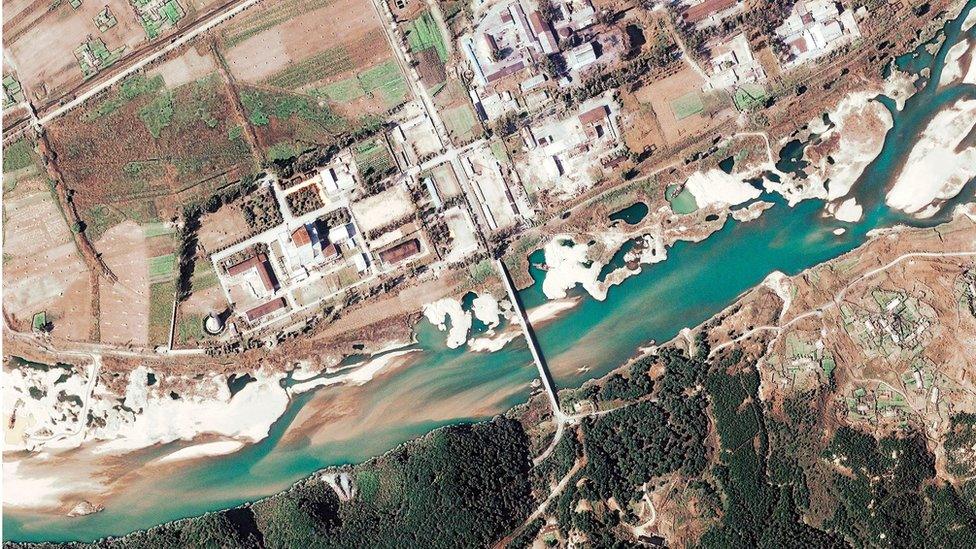
- Published20 April 2017
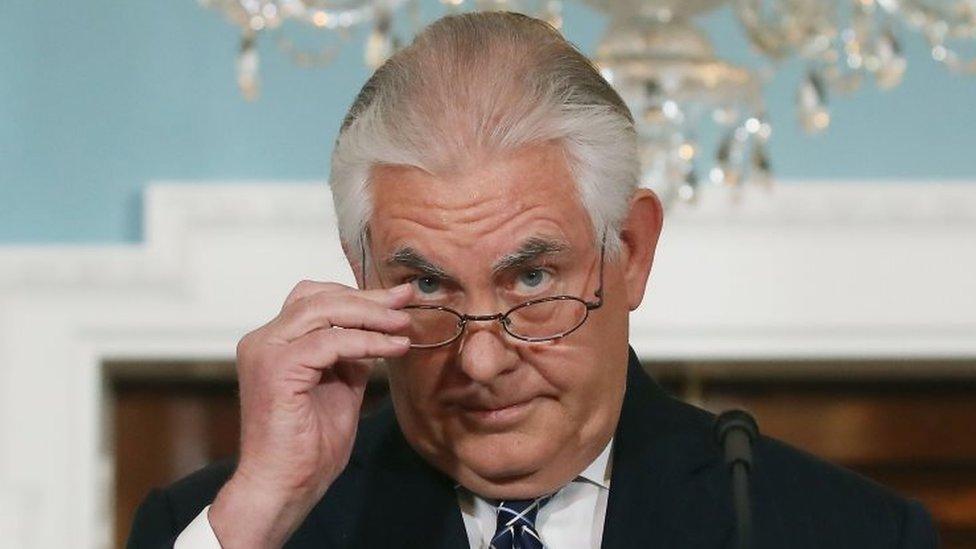
- Published23 November 2021
